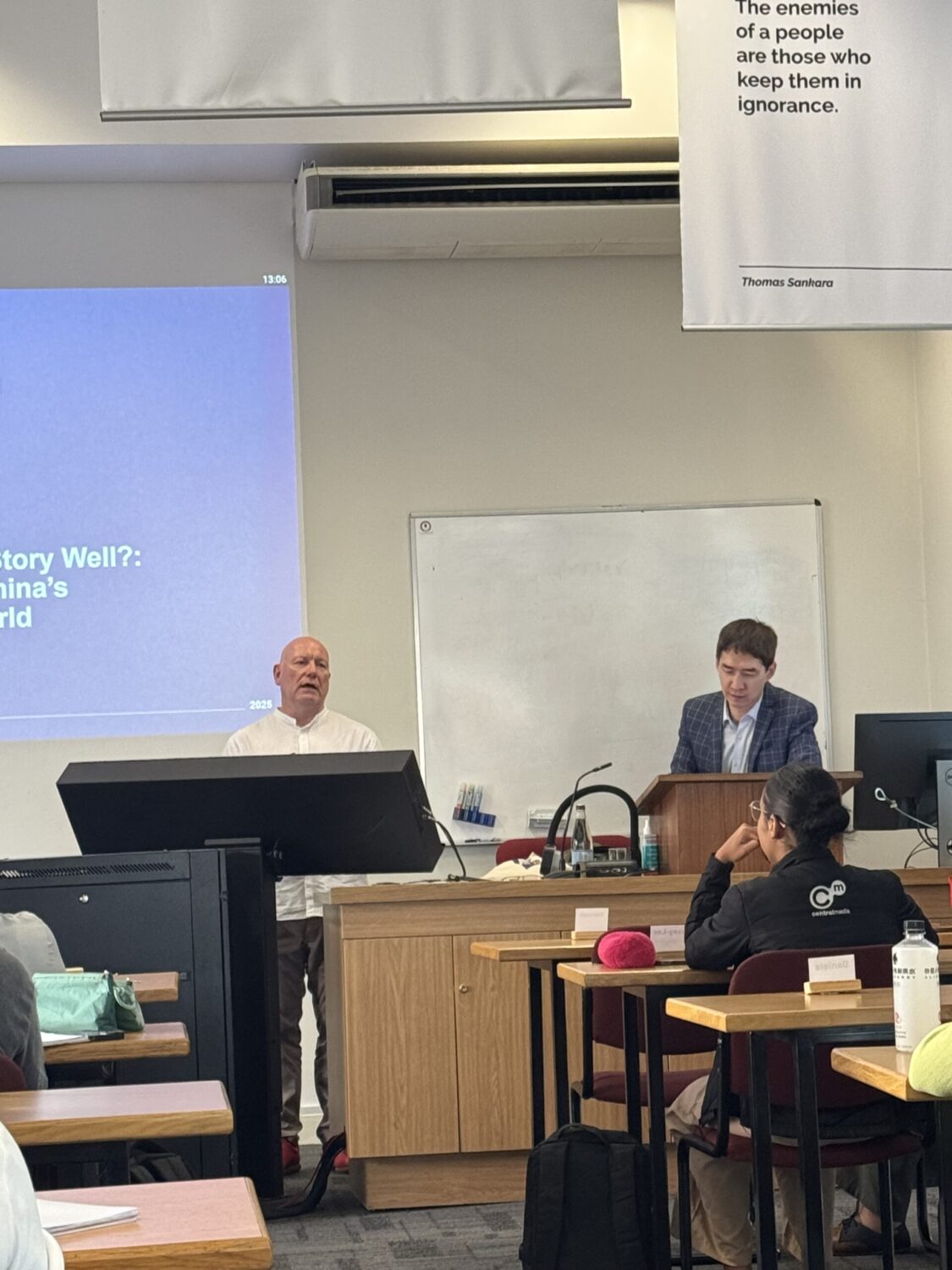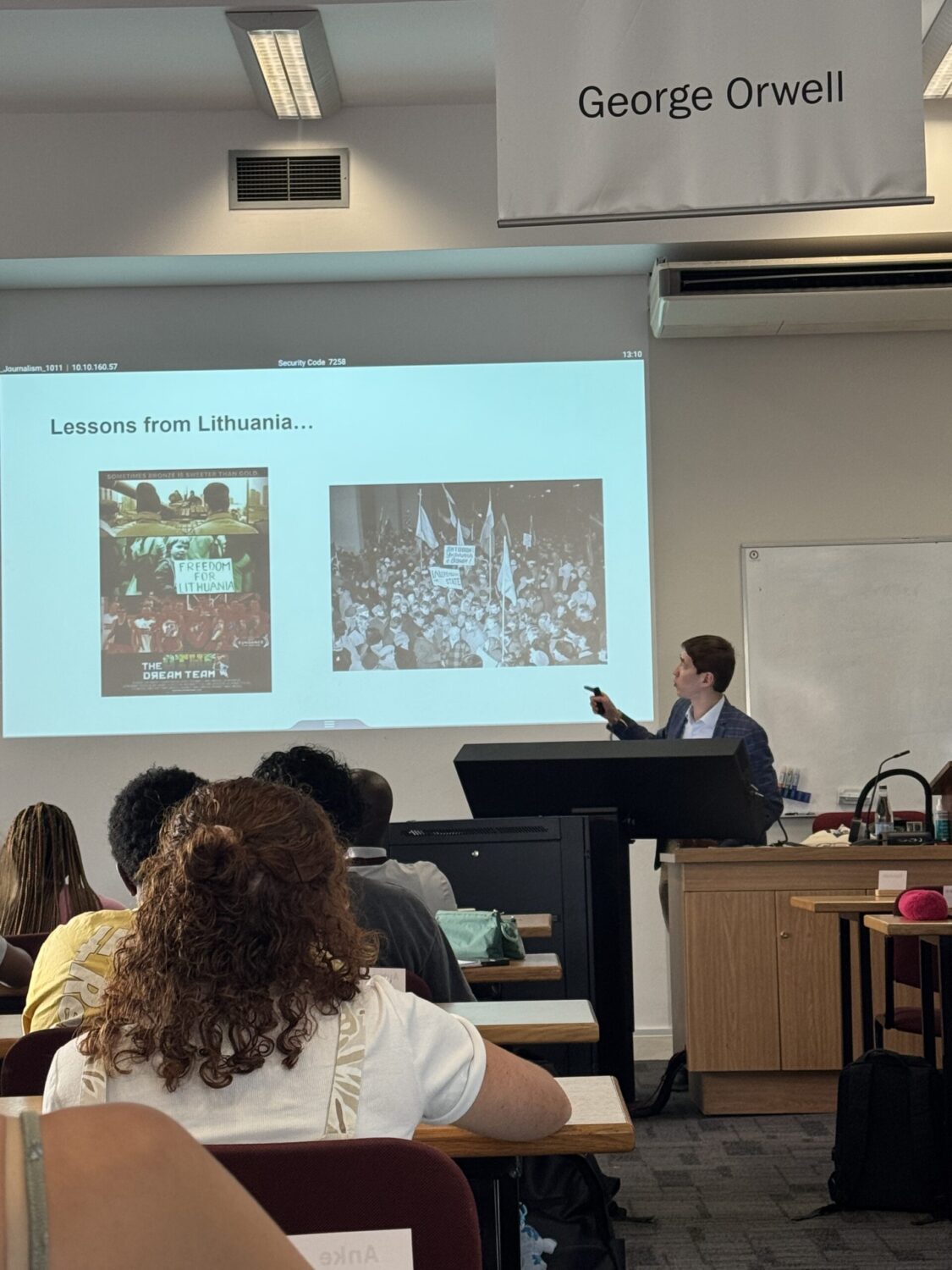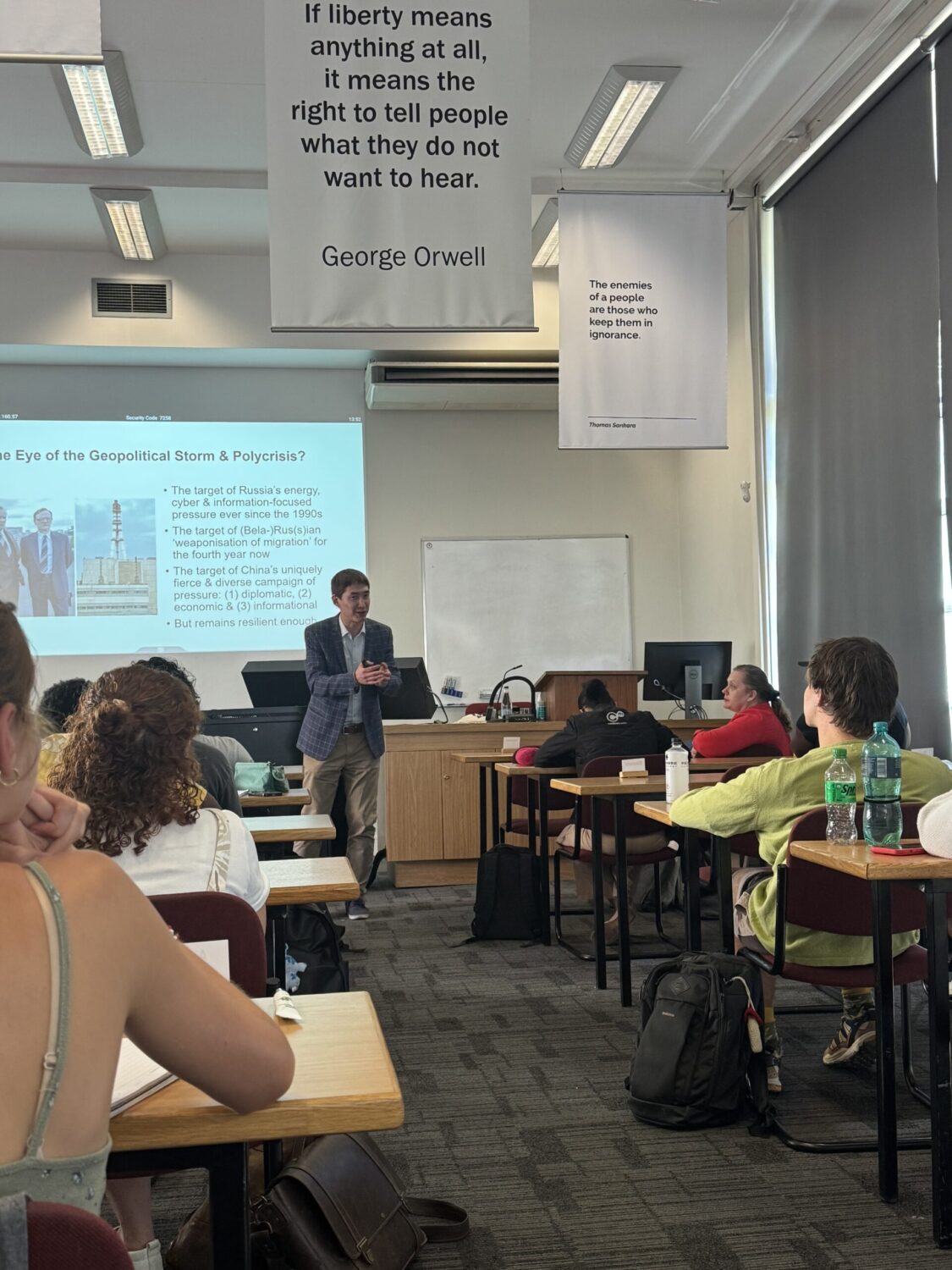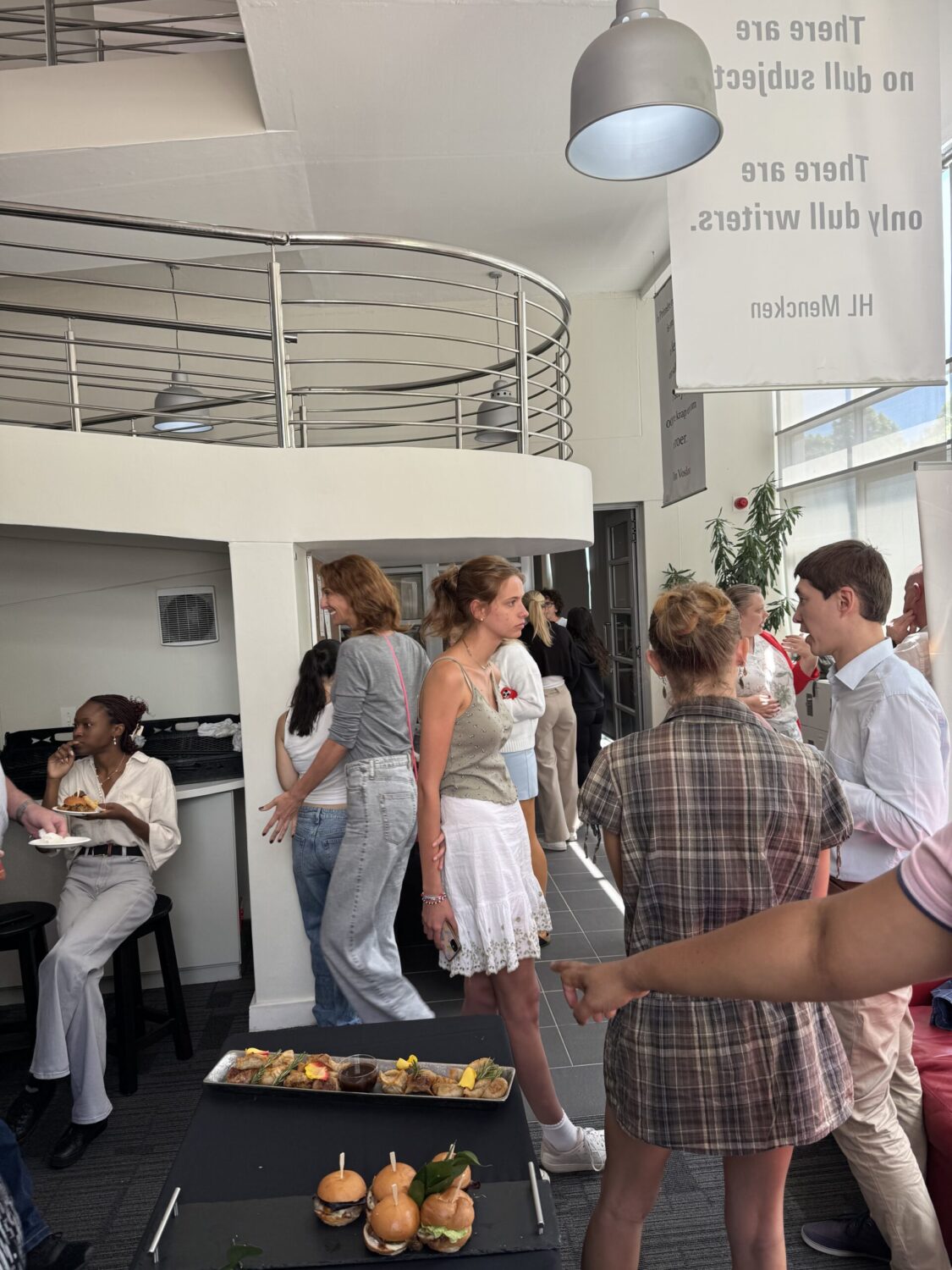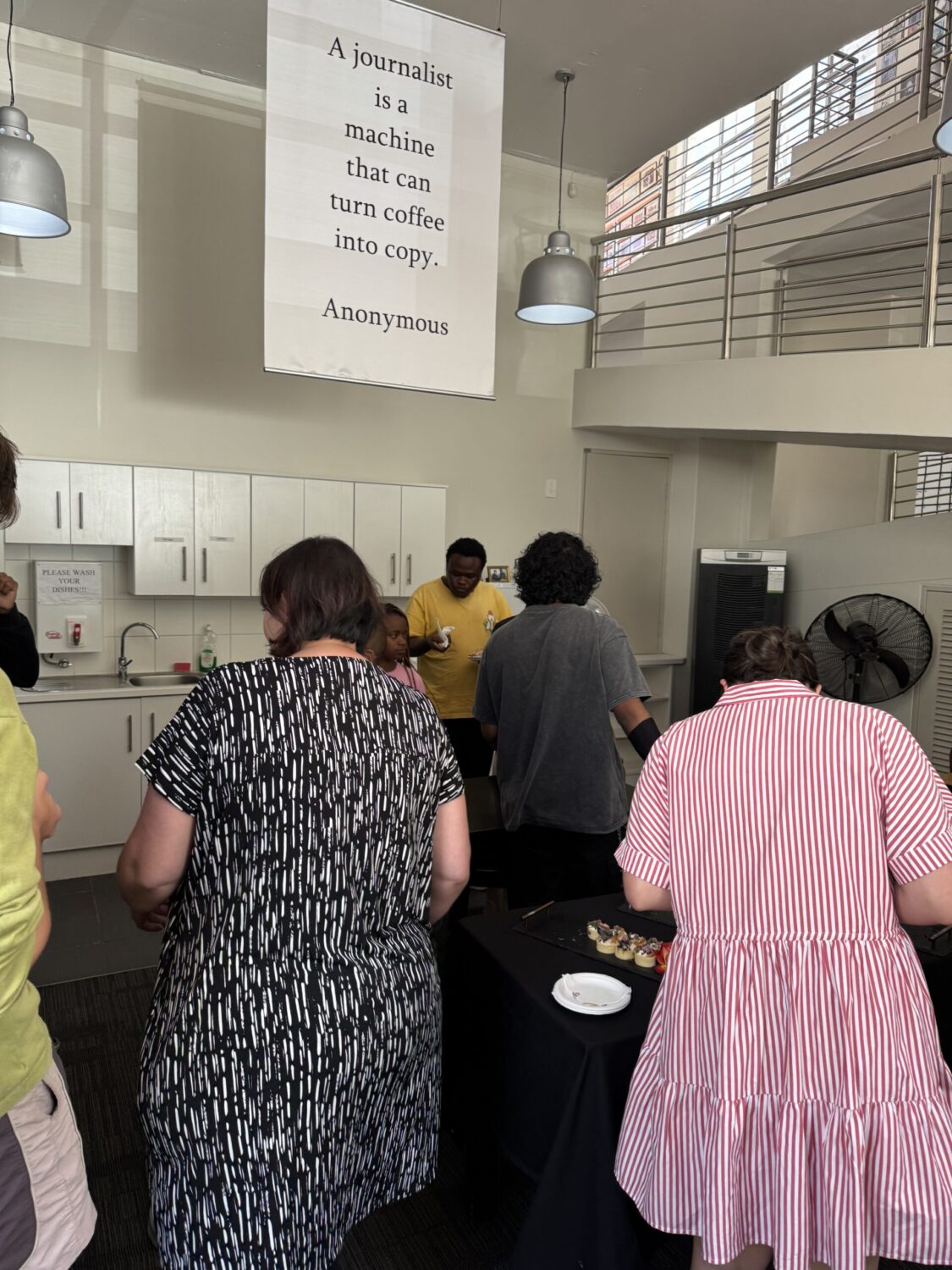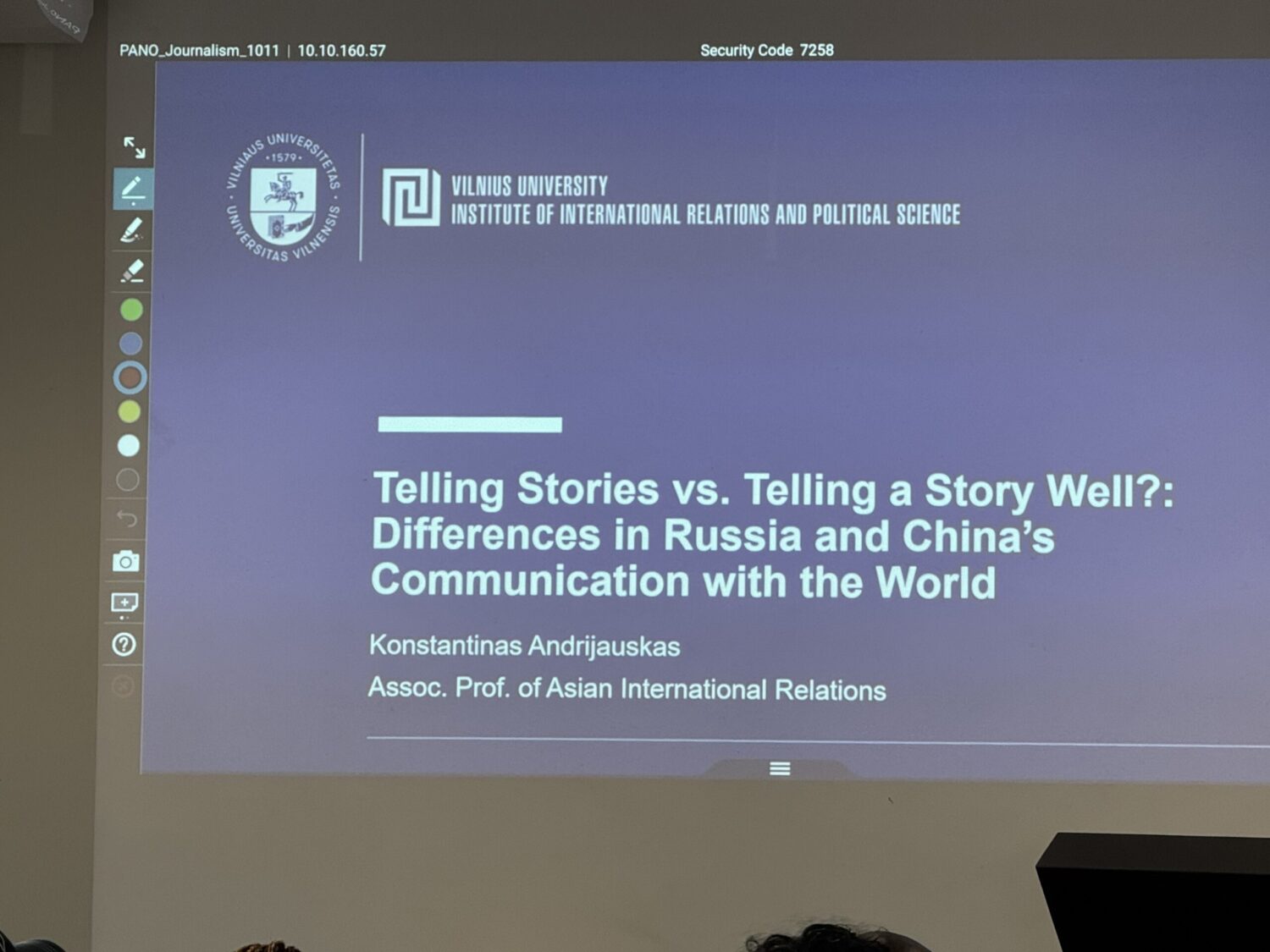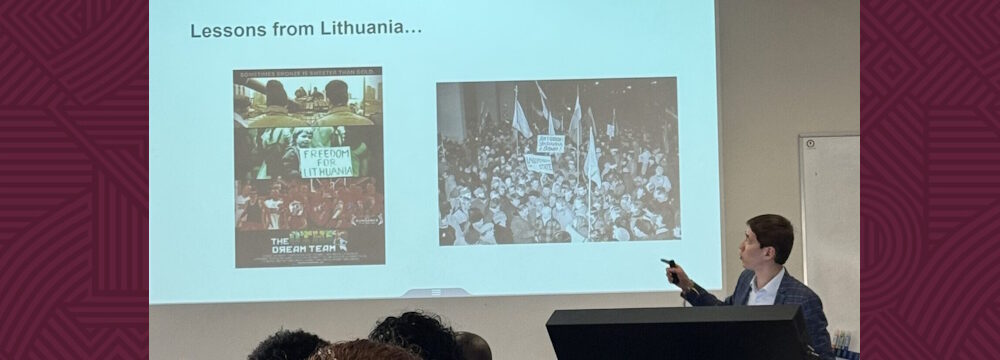
The Stellenbosch University Department of Journalism had the distinct honor of hosting Associate Professor Konstantinas Andrijauskas for an enlightening seminar titled “Telling Stories vs. Telling a Story Well? Differences in Russia and China’s Communication with the World.” The seminar provided a thought-provoking analysis of how these two global powers shape narratives, influence international perceptions, and strategically use storytelling in diplomacy, politics, and media.
As the world navigates an increasingly complex media landscape, Professor Andrijauskas explored the intricate ways in which Russia and China employ communication strategies to assert influence on the global stage. His analysis shed light on how state-controlled media, public diplomacy, and digital platforms serve as key tools in their efforts to mold public opinion and international relations.
One of the key themes of the seminar was the stark contrast between the narrative approaches of Russia and China. Professor Andrijauskas explained how Russia often engages in disruptive and provocative counter-narratives, using sharp power tactics to challenge dominant global discourses. In contrast, China adopts a more structured, long-term approach, leveraging soft power through cultural diplomacy and economic partnerships to reinforce its strategic messaging.
The seminar also underscored the impact of these communication strategies on journalism and media literacy. Attendees gained valuable insights into how international news coverage is shaped by geopolitical messaging and how audiences can critically engage with media narratives. The discussion highlighted the necessity of media literacy in deciphering global storytelling and recognizing the strategic objectives that underpin them.
A key highlight of the event was the interactive Q&A session, where students, academics, and media professionals engaged in vibrant discussions. Topics ranged from the role of state-controlled media ecosystems to the increasing influence of social media in modern propaganda and the challenges it poses for journalistic integrity and freedom.
The Department of Journalism extends its sincere gratitude to Professor Andrijauskas for sharing his expertise and to all attendees who participated in the enriching dialogue. Events like these play a crucial role in broadening our understanding of global media dynamics and fostering meaningful discussions in the field of journalism and communication.

